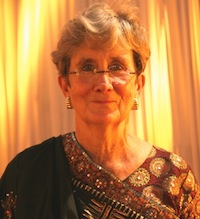
Dr. Govindappa Venkataswamy
I had the opportunity to give a lunchtime talk to the associates of Harvey Siskind Jacobs LLP last week. The topic was How to Be a Lawyer. I won’t bore you with the whole presentation – they get paid to listen to my shit, you don’t – but let me touch briefly on one aspect, which has interesting relevance to the service community as well as to young lawyers.
Whether one is engaged in voluntary service or a service profession, there is an important sense in which one sublimates their own interests, desires, and comforts to the needs of others.
In the past 17 years of my law practice, I cannot begin to count the number of all-nighters I’ve pulled, meals I’ve missed, and personal engagements I’ve blown-off in order to make good things happen for my clients. My own affairs may be in disastrous disarray, but the matters entrusted to me by others were always given my most dedicated attention. It’s a modern version of the classic allegory of the cobbler’s kids going shoeless.
If you can retain a sense of objectivity, giving priority to the needs of another is a fascinating experience. It’s about more than just the professional responsibility we incur when we agree to accept a fee for our services. It’s not even about trying to perform well because we take pride in our work. It’s about a psychological transformation that occurs when we understand that others are counting on us to protect their interests. Sure, our sacrifice is intentional and premeditated. We do, after all, undertake representation willingly and with a full understanding of the work that might be necessary. But the more interesting aspect of our behavior comes as second-nature, derived from a deep-seated moral sense that we must do our best for those who rely on us.
It is the same with voluntary service. Dr. Govindappa Venkataswamy, who has dedicated his life to eradicating needless blindness in the poorest communities in the world, perfectly described this sublimation of the self in his 1991 lecture at Harvard Divinity School on rationalism and spiritualism, which was later published as Illuminated Spirit.
It’s a very, very funny experiment. You sit with a person from a village, a rustic person. Here is someone with all of the simplicity of faith in you: “Doctor, whatever you say, I will do it.” Now, how can I train myself to do perfection for her?
The transformative power of service is the same whether it comes from taking professional obligations to heart or from deciding to give attention to the needs of others with no thought of remuneration. But there is one difference: a difference of perspective. In the professional context, it’s all about putting yourself second. In pure service, it’s about understanding that there is no meaningful difference between yourself and those you serve. As Dr. V would say, “When we grow in spiritual consciousness, we identify ourselves with all there is in the world. Then there can be no exploitation. It is ourselves we are helping. It is ourselves we are healing.”














Recent Comments